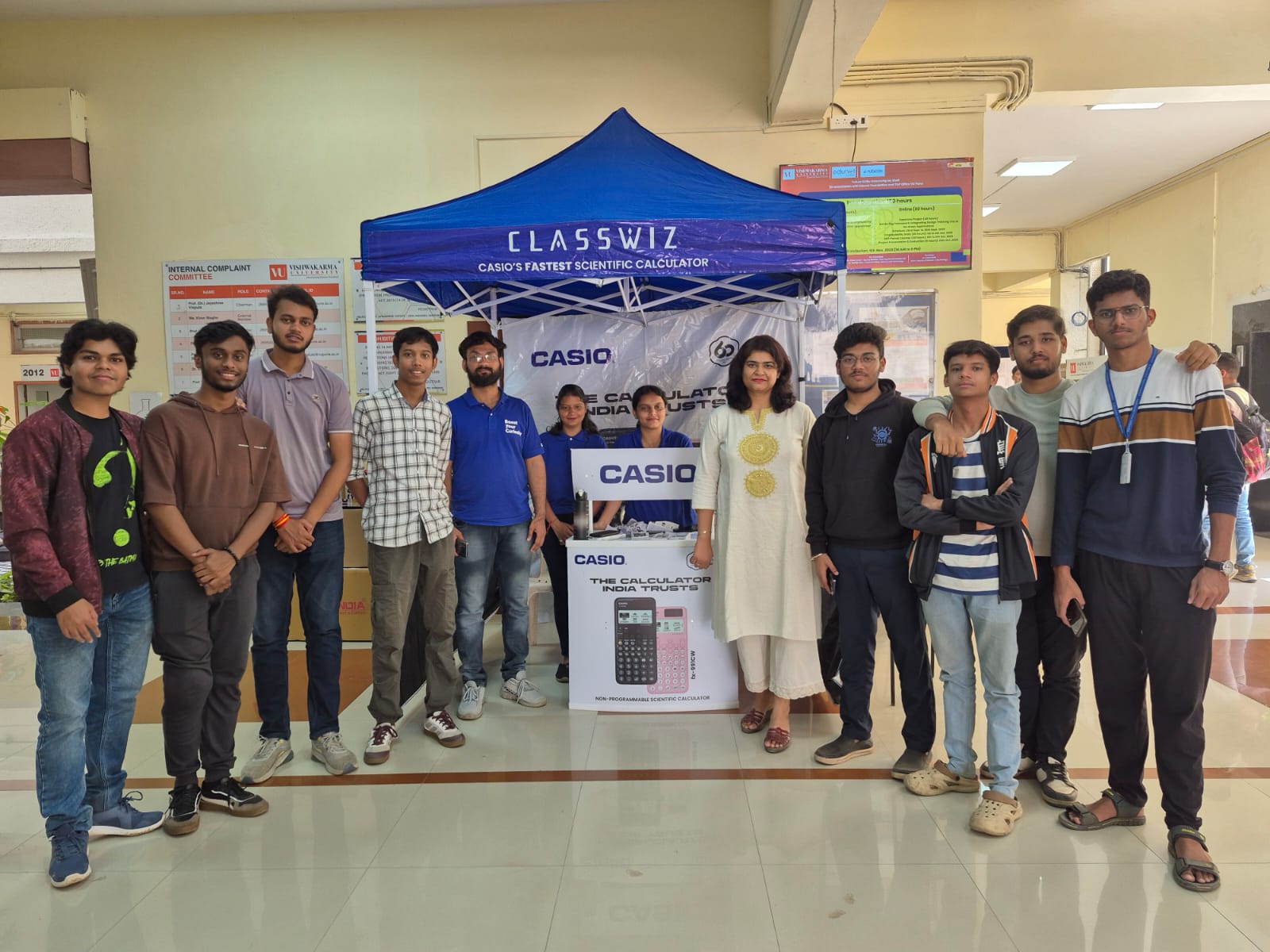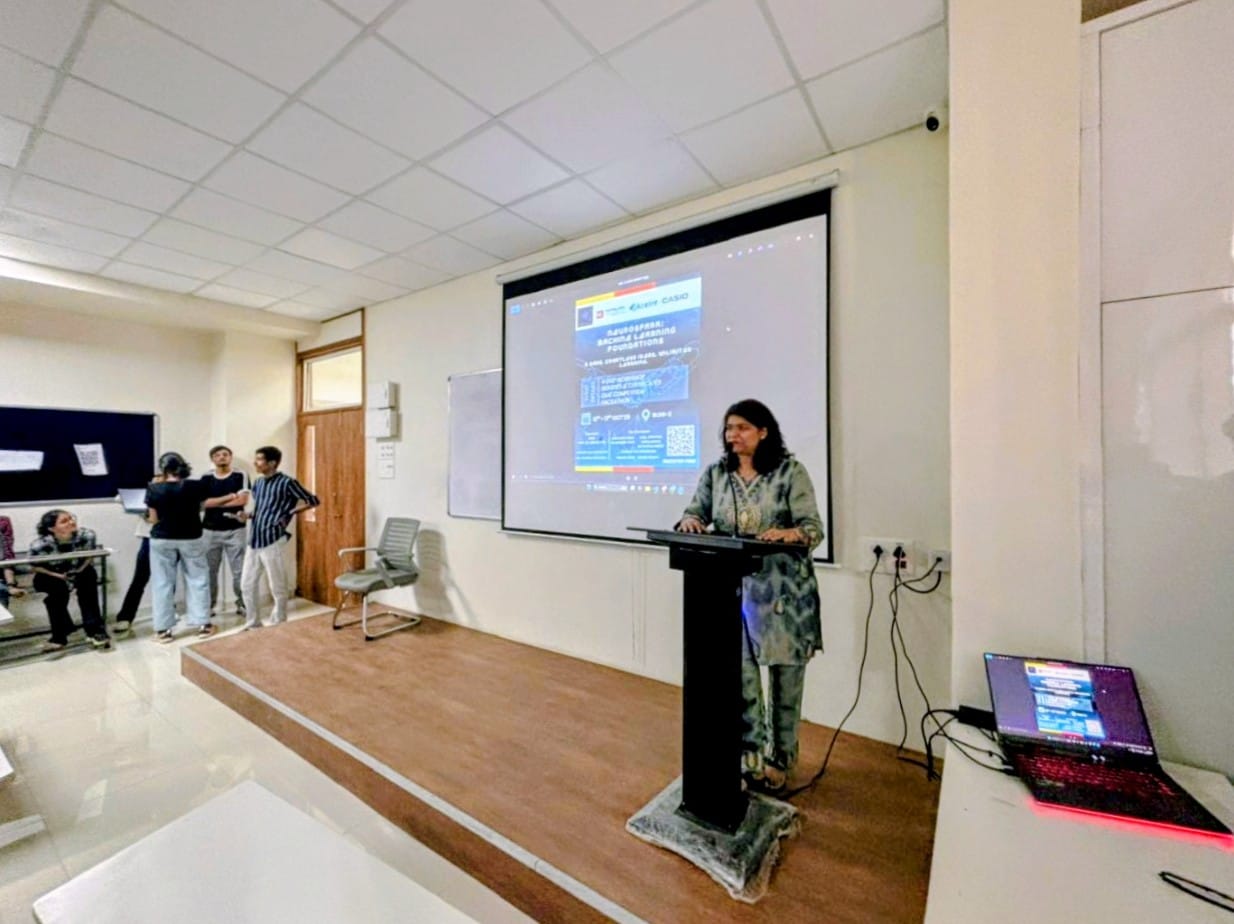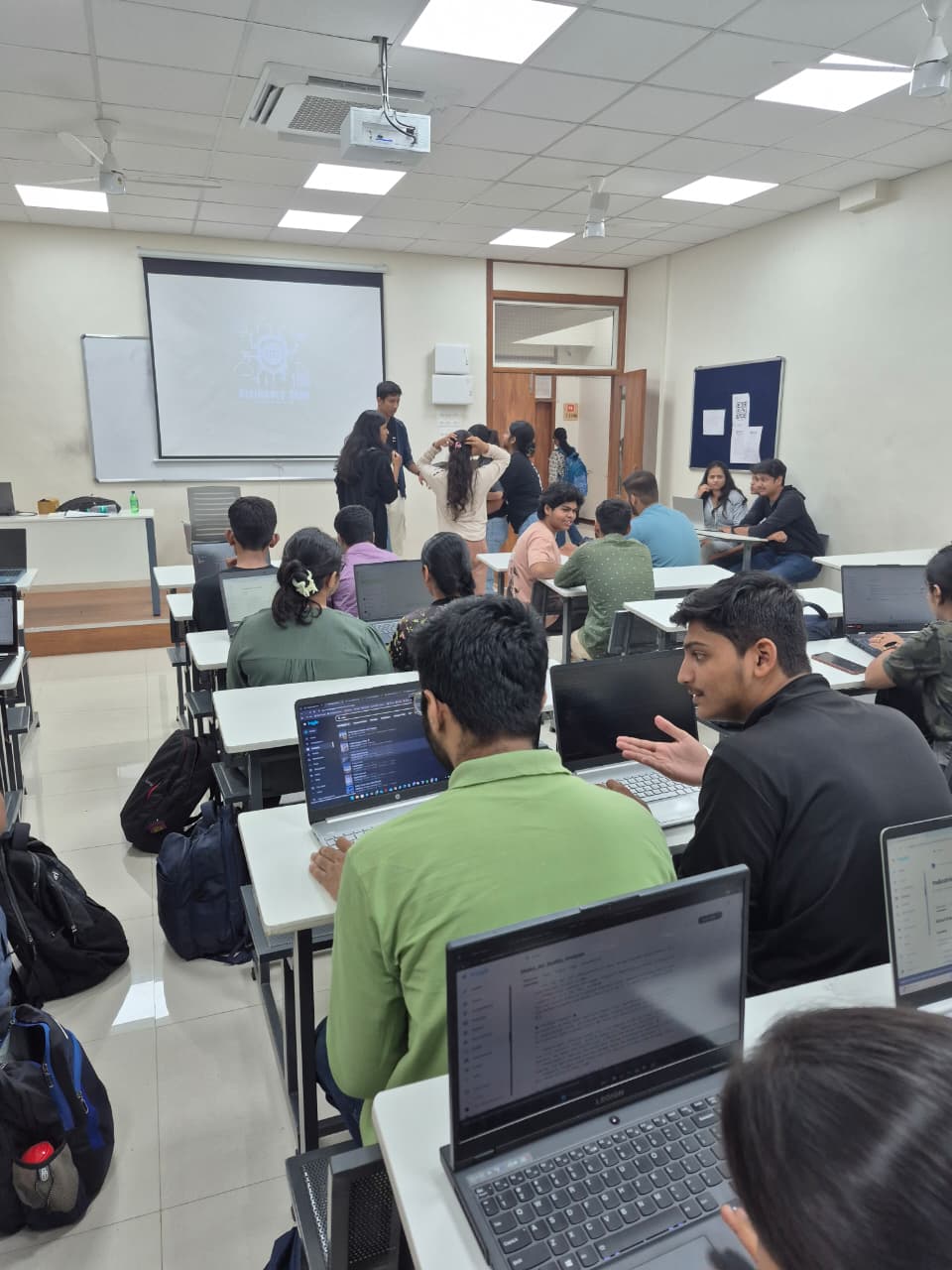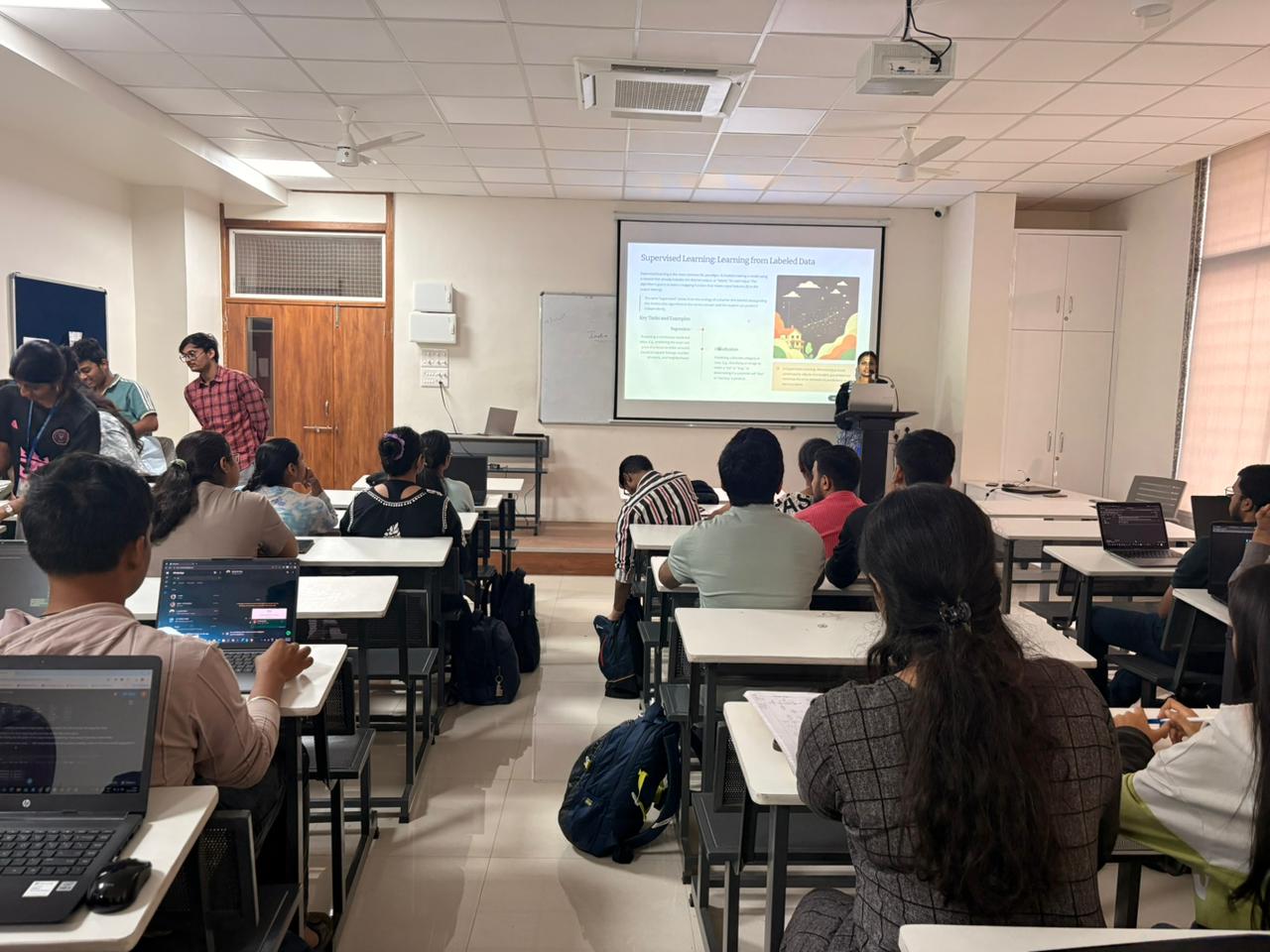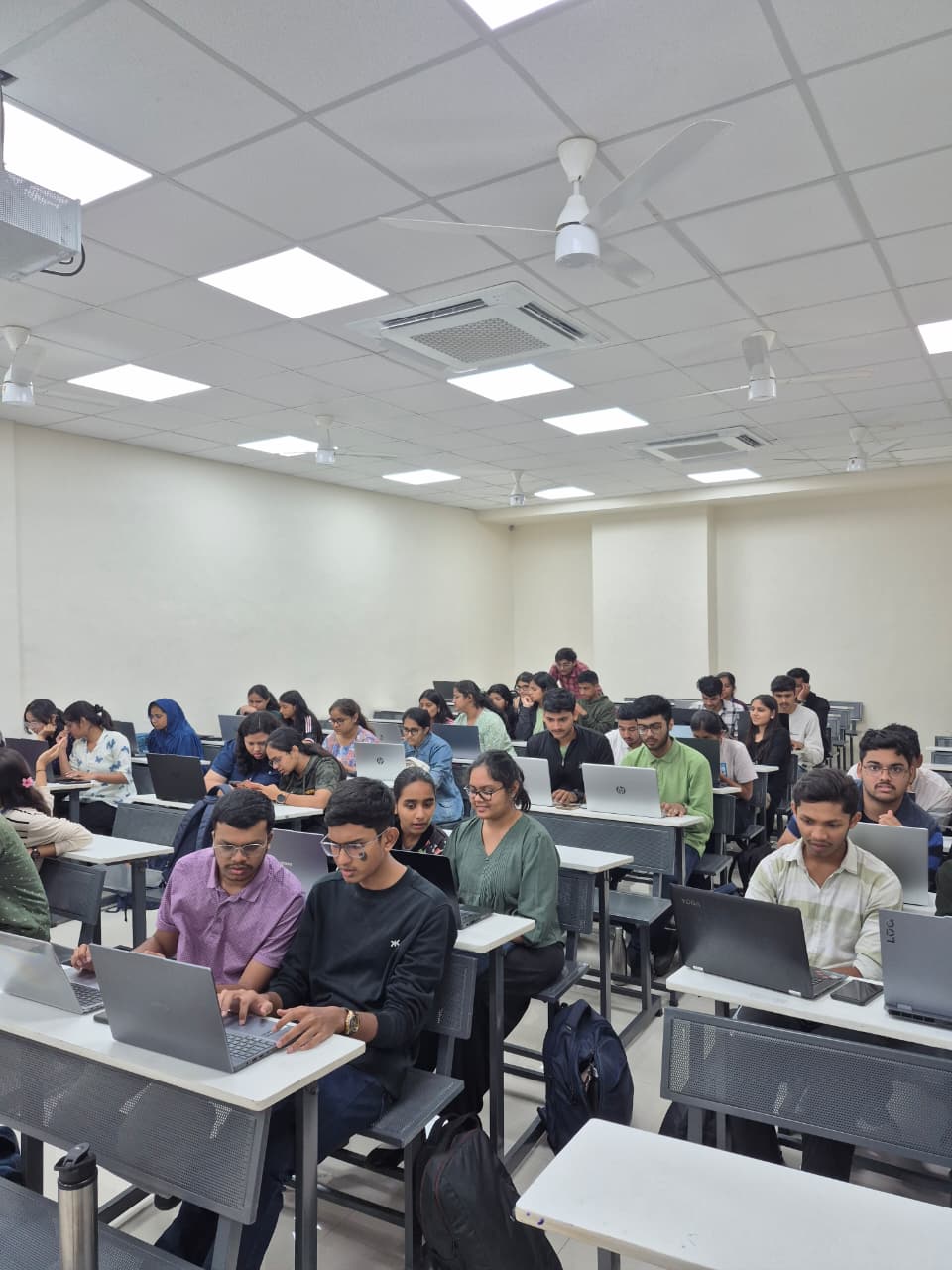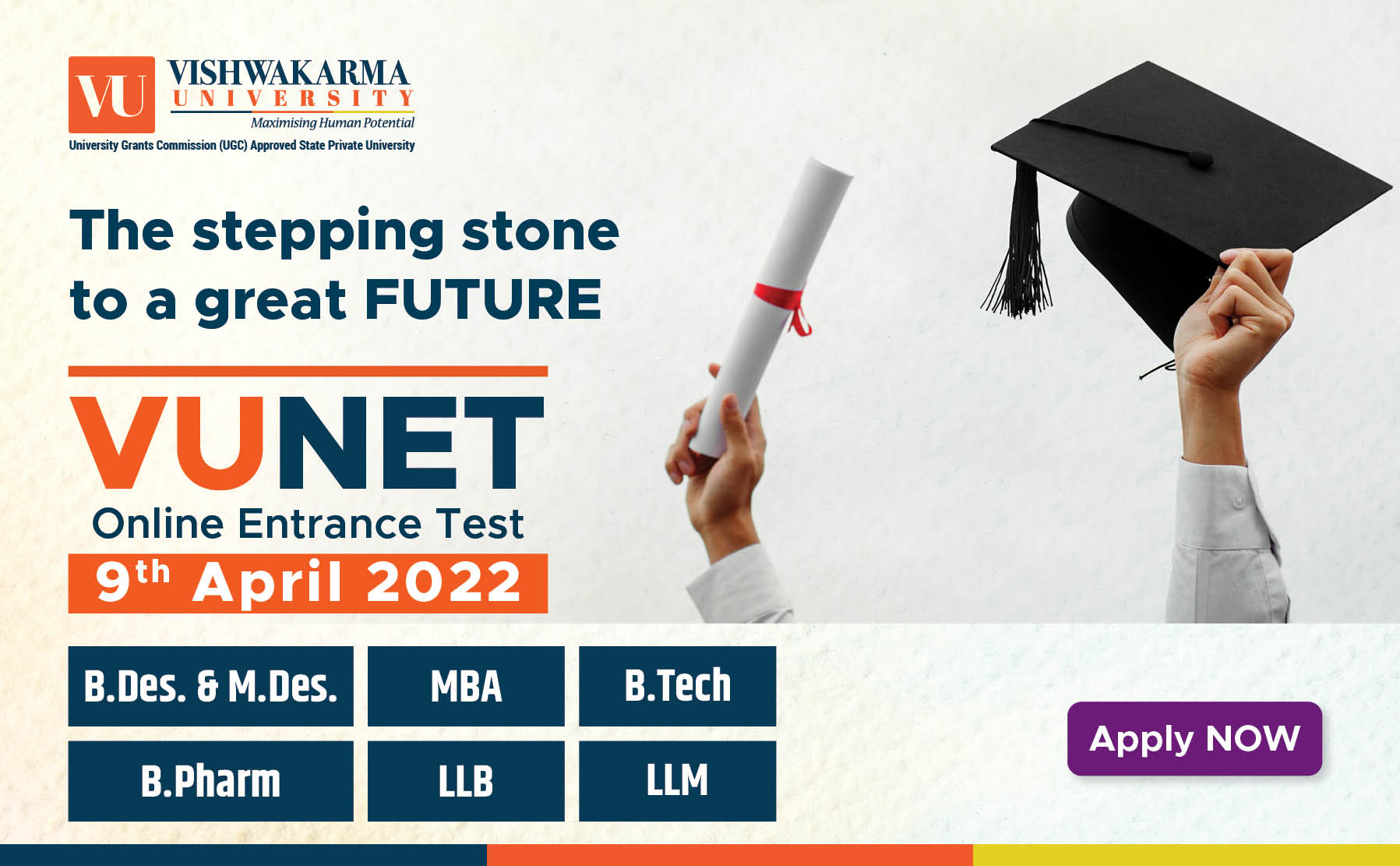Organized by
VISIONARY CLUB
Department of Artificial Intelligence
Faculty of Science & Technology
Vishwakarma University, Pune
Activity Title: NeuroSpark – Workshop on AI/ML & Python
Pre-event Activity Date: 6 October 2025
Workshop Dates: 13th – 17th October 2025
Venue: Vishwakarma University, Pune
Organized by: Visionary Club, Faculty of Science & Technology
Faculty Coordinator: Dr. Pratibha Mahajan
1. Introduction
The Visionary Club of the Faculty of Science & Technology, Vishwakarma University, organized a five-day hands-on workshop titled “NeuroSpark – AI/ML & Python Workshop” from 13th to 17thOctober 2025.
This initiative aimed to introduce students to the fast-evolving fields of Artificial Intelligence (AI) and Machine Learning (ML) through a blend of conceptual understanding and practical application usingPython. The sessions were carefully designed to guide participants from the fundamentals of data
analysis to the construction and evaluation of machine learning models.The workshop provided an ideal platform for learners to develop the computational and analytical mindset required to tackle real-world data challenges, aligning with the university’s vision of promoting innovation, creativity, and technological excellence.
2. Objectives
The NeuroSpark Workshop was designed with the following key objectives:
- To introduce the foundational concepts of Artificial Intelligence and Machine Learning.
- To provide participants with a clear understanding of the end-to-end ML workflow.
- To offer hands-on experience in data preprocessing, feature engineering, and model training.
- To enhance students’ familiarity with Python and tools like Google Colab, NumPy, Pandas, and Matplotlib.
- To cultivate problem-solving, critical thinking, and teamwork through a mini hackathon.
3. Pre-Event Activity
As a build-up to the main event, a fun and interactive pre-event activity was held on 6 October 2025, offering students a chance to participate in the CASIO Quiz and win the latest Casio fx
991CW Scientific Calculator, creating great excitement across campus.
4. Inauguration
The workshop was inaugurated by Dr. Pratibha Mahajan, who emphasized the importance of AI and ML in shaping the future of technology and highlighted the need for continuous upskilling in these emerging domains.
In her address, Dr. Pratibha Mahajan encouraged students to adopt a hands-on learning approach and engage in problem-solving through experimentation and collaboration.
The inauguration was attended by faculty members and Visionary Club representatives, setting a positive and enthusiastic tone for the week-long learning journey.
5. Workshop Structure & Highlights
Day 1 (13th October): Introduction to AI/ML Concepts
- Overview of Artificial Intelligence, Machine Learning, and their real-world applications.
- Understanding the ML lifecycle – from data collection to model deployment.
- Setup of Google Colab and Python environment for ML tasks.
- Basics of datasets: CSV handling, features, target variables.
- Hands-on: Loading and visualizing sample datasets using Python libraries.
Day 2 (14th October): Data Handling & Preprocessing
- Conducting Exploratory Data Analysis (EDA).
- Managing missing values, outliers, and categorical encoding.
- Introduction to scaling and normalization.
- Feature engineering and dataset splitting for model training.
- Overview of evaluation metrics (accuracy, precision, recall, F1-score).
- Hands-on: Data cleaning and preprocessing using a sample dataset.
Day 3 (15th October): Core Machine Learning Models
- Understanding supervised learning techniques.
- Detailed explanation of Linear Regression and Logistic Regression.
- Introduction to Decision Trees, Random Forests, and basic Boosting algorithms.
- Conceptual overview of Neural Networks and their applications.
- Hands-on: Building, training, and evaluating machine learning models in Python.
Day 4 (16th October): Model Optimization & Real-World Insights
- Hyperparameter tuning and performance improvement methods.
- Understanding bias-variance tradeoff and model interpretability.
- Cross-validation techniques for model validation.
- Interactive session: Discussion on real-world AI applications in healthcare, finance, and cybersecurity.
- Preparation for the final day hackathon.
Day 5 (17th October): NeuroSpark Hackathon
The closing day featured a mini hackathon, where participants were grouped into small teams and assigned unique datasets.
Students were tasked with performing end-to-end ML tasks — from data preprocessing to model development and result interpretation.
The hackathon encouraged participants to apply their learning creatively and collaboratively, simulating real-world project workflows.
Judges evaluated each team based on model accuracy, innovation, and presentation clarity.
Outstanding teams were recognized for their innovative problem-solving approaches and effective data-driven strategies.
6. Participation Statistics
- Total Participants: 80+ students from the Faculty of Science &Technology.
- Number of Teams in Hackathon: 18
- Total Hours of Training: 25+ hours of instruction and practice.
- Learning Tools Used: Python, Google Colab, Pandas, NumPy, Matplotlib, Scikit-learn.
The active participation and engagement reflected the students’ growing interest in machine learning and data science applications.
7. Feedback & Learning Outcomes
Participants expressed that the workshop offered a balanced mix of conceptual clarity and practical exposure.
Key learning outcomes included:
- Ability to independently clean, preprocess, and analyze datasets.
- Improved understanding of regression, classification, and model evaluation.
- Exposure to modern ML tools and best practices.
- Enhanced collaboration and communication during the hackathon.
Many participants also shared that NeuroSpark boosted their confidence to take up independent ML projects and research work.
8. Recognition & Closing Ceremony
All participants were awarded E-certificates for their successful completion of the workshop.
The event concluded with a vote of thanks by Prof. Prajakta Dhamdhere, appreciating the dedication of students, mentors, and volunteers.
Special acknowledgment was given to Dr. Pratibha Mahajan for her constant guidance and encouragement throughout the event.
The workshop concluded on an inspiring note, marking the beginning of continued learning and innovation among participants.
9. Future Scope
Building on the success of NeuroSpark 2025, the Visionary Club plans to conduct:
- Advanced workshops on Deep Learning and Neural Networks.
- Short courses on Data Visualization and AI for Cybersecurity.
- Cross-departmental hackathons encouraging interdisciplinary AI innovation.
These initiatives will further strengthen the AI learning culture within the Faculty of Science & Technology.
10. Conclusion
The NeuroSpark Workshop 2025 was a resounding success, fostering a deeper understanding of AI and ML among students.
Through its structured sessions, interactive discussions, and hands-on hackathon, the workshop delivered both academic enrichment and practical skill development.
Organized by the Visionary Club, this event truly embodied Vishwakarma University’s mission of“Maximising Human Potential” through technology-driven learning and innovation.
